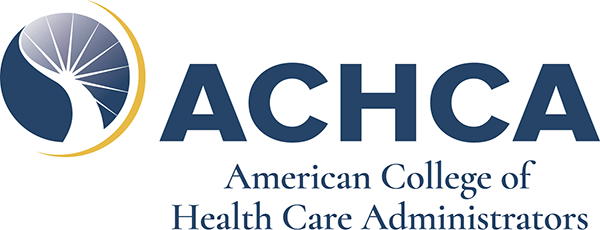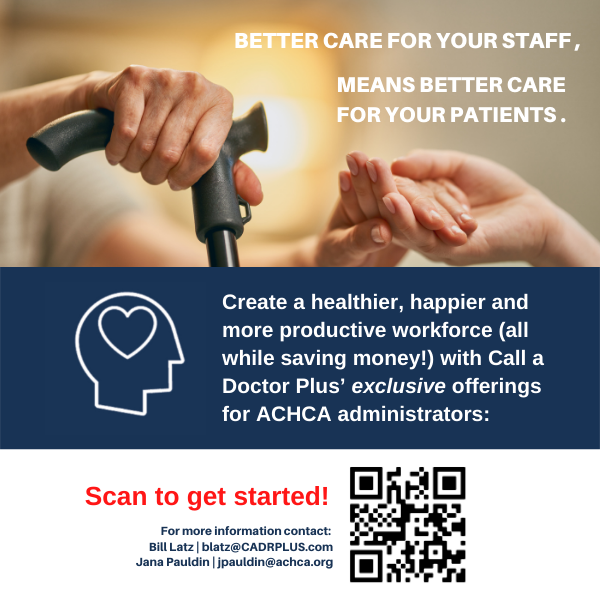We’ve all been there–you’re walking through the mall and see something you just can’t live without, only to get home just hours later and immediately experience buyers remorse. But what if we told you there’s a scientific reasoning for why this occurs.
California Summer Hiking Safety
Summertime in California means we’re headed outside to enjoy the fresh air and warmer temperatures that the season offers. Even still, you’ll want to make sure you’re well prepared before you head out on a hike to avoid a potentially dangerous situation. Take a look at some of the following tips to keep you safe from the California heat and wilderness this summer.
Stay Hydrated
Read More
Volunteerism and Aging
Volunteer services provide an attractive role for many aged individuals. Interestingly, women have traditionally volunteered, but the greatest increase in volunteering has been among elderly men. The number of older women who volunteer has remained relatively constant.
Statistically, 35% of the 65 and older population are engaged in some type of volunteer work. Most of the work is with religious organizations. Those who are involved as volunteers feel they are contributing to their community and are filling gaps in services that otherwise might be unmet. Their self-esteem and usefulness appears to prevail. Here is a list of several programs that include senior volunteer opportunities:
Read More
The COVID-19 pandemic fundamentally altered relationships and once-reliable life, work, school and home routines. More than ever, Americans have turned to virtual mental health programs during this time.
Before the pandemic, nearly one in five U.S. adults (47 million) reported having any mental illness. One in 10 adults reported symptoms of anxiety and/or depressive disorder. However, by July 2020, several months into the pandemic lockdown, a Kaiser Family Foundation Health Tracking Poll found that 41% of U.S. adults had reported symptoms.
With mental health care already being critical, the COVID-19 pandemic saw a surge in demand for services and pushed the need for optimal care, including effective digital solutions and virtual options for mental health care delivery into sharp focus.
Read More
Stress Reduction and Aging
The aged frequently experience a decrease in their ability to cope with the multiple stressors of life that can result in a waning of their capacity to adapt. The following is a review of several themes that are recommended by the researchers and that offer practical suggestions for those who are dealing with the excessiveness of life’s stressors.
Theme I – Progressive Relaxation
Read More
Member Spotlight
ACHCA highlights member, Sherri Gunasekera, LNHA, MHA, MSN, RN-BC, LNC, and her medication aide training workshops with facility RNs and AITs. Sherri teaches the only Medication Aide program in Southwest Ohio. Her training workshops instruct registered nurses and administrators-in-training on how to start their own Medication Aide programs in their facility.
Read More
Pain, Comfort and Aging
By definition, “comfort is a state of ease and satisfaction, of bodily freedom from pain and anxiety.” According to recent research, “The absence of physical pain is not always sufficient to provide comfort. The aged may have their biologic needs satisfied but still be emotionally distressed.”
Nurses understand the significance of the word “comfort” which describes the goals and outcomes that aid in determining the nursing measures needed to administer care. However, the meaning remains vague and essentially abstract to the person who is the recipient of that nursing intervention. The researcher, Hamilton, studied the meaning and attributes of comfort from the point of view of the chronically ill elderly who is hospitalized in a geriatric setting. Hamilton’s definition of comfort is “multidimensional, and means many things to different people.” The researcher, McCaffery’s definition of pain is “whatever the person experiencing pain says it is.”
Read More
In need of a winter escape? Make the experience safe and comfortable with deals from your ACHCA Avis and Budget Car Rental Savings Program. With the Pay Now feature, members can save up to 35% off base rates on every rental, plus receive additional offers like a free upgrade or dollars off.
Read More
Proper Biking Posture
Riding a bike can be a fantastic way to spend your time actively, and achieving the correct posture will help you to increase speed, efficiency and reduce injuries. Experienced riders make it look easy to glide seamlessly across any surface, but doing so requires perfecting your posture and form. As you do the work to find the best riding position for your body, It’s important to keep in mind that there isn’t one cycling posture that works for everyone. Adapting guidelines and best practices to your riding style will help you find the correct posture for your body type.
Read More
Staying fit is synonymous with being healthy. Sports are the best way to ensure a more extended lifestyle and avoid serious diseases, like obesity, heart disease, mental illness, and many more. Also, it is enjoyable! Cycling has been touted as an amazing sport and outdoor activity with extensive health benefits. Out of many, these are some of the significant health benefits of cycling practice.
Read More
The Geriatric Orphan and Aging
The geriatric orphan is described as an elderly person with no close friends nor survivor or family members who are available to provide emotional support. He or she has had significant others and lost them to death, distance or fractured relationships. This individual has not, however, desired to be alone. The researcher, Boyack suggests, “It is imperative to establish a surrogate network, assist the individual through their grief, resolve any unfinished business and seek appropriate resources for maintenance in the community as long as desired and able.” However for some, it can be a welcome relief to be among others in a congregate or institutional setting despite a commonly held belief against residing in a nursing facility or setting.
As we observe this individual we begin to understand the three Rs that define the tasks of aging as identified by the researcher, Cynthia Kelly. They are “accepting reality, fulfilling responsibility, and exercising rights.”
Read More
Catastrophic Reactions and Aging
The researcher Goldstein, coined the term “catastrophic reaction” to describe the overreaction to minor stresses which occur in patients with advanced dementia. It is precipitated by fatigue, overstimulation, an inability to meet expectations, and persistent misinterpretations. According to Goldstein, “When the environment is misperceived and one feels threatened, the following signs are noted:
|
|
|
|
|
|
According to the researcher Mace, “Intervention becomes necessary to avert or minimize these reactions.” Any sudden deterioration in cognitive function with worsened behavior should be considered as a warning that the patient may be physically ill and will act out.
Read More
Case Mix reimbursement operates on a weighted scale, the more resources needed to provide resident care, results in a higher CMI score and a higher reimbursement level. The Minimum Data Set (MDS) Assessment is used by states to collect objective data regarding a resident within specific timeframes, across multiple disciplines. When an MDS assessment is completed, a clinical score that reflects resident acuity is assigned. This clinical score, known as a Resource Utilization Group (RUG) level, correlates with direct care costs in a Case Mix reimbursement system.
Implementing systems that strengthen documentation of care provided and data capture in the MDS assessment, can have a significant impact on a provider’s Medicaid revenue.
Read More
Establishing a Legacy and Aging
A legacy is one’s tangible and intangible assets that are transferred to another and may be treasured as a symbol of the individual who is bequeathing it. The elderly should be encouraged to identify that which they would like to leave and who they wish their recipients to be. This process has great significance and tends to prepare one to “leave” with a sense of meaning.
Legacies can provide a feeling of continuation and tangible ties to their survivors. Legacies may range from memories to material bequests that will live on in the minds of others. The researcher Erikson’s seventh stage of man identifies the generative function as the main concern of the adult years and the last stage, the eighth, as that of reviewing with integrity or despair what one has accomplished.
Read More
According to a report in 2016 by the National Academies of Science, Engineering, and Medicine (NASEM), at least 17.7 million individuals in the United States are family caregivers of someone aged 65 and older who has a significant impairment.
Read More
The importance of being a home health care provider has risen in the past years – so much that in the next ten years, 1.1 million people will be working on it. Although it is assumed that only people in bed are cared for, homecare providers provide services to so many patients.
Read More
Homecare Bathroom Safety Tips
Accidents happen all the time, but in-home accidents are one of the major causes of death for seniors. While a slip and fall accident can happen anywhere around the house, the bathroom is by far the most dangerous room for them. Considering slippery floors, showers that don’t have slip-resistant tiles, and don’t have a grab bar installed.
Read More
Nurse staffing shortages have escalated nationwide to such an extreme level they are now labeled a staffing crisis. Skilled nursing facilities have implemented wait lists, declined new admissions, and even closed units as a result of the staffing crisis.
While the nation is currently gripped by the pandemic, long-term care providers will absorb the ripple effects of the staffing crisis for years to come. Industry experts anticipate providers will see declined reimbursement, as well as increased federal auditing due to use of PHE waivers. In addition, providers should expect to see Five Star rating reductions for survey non-compliance related to infection control surveys, with zero tolerance resulting in immediate jeopardy tags. Five Star ratings for staffing may see effects from burnout, vaccine mandates and other constraints placed on healthcare workers.
Read More
Frailty, Vulnerability and Aging
The elderly, because of reasons of pride or because of mental impairment may not always state their problem or problems directly. Tolerance and patience may be required in teasing out the issues. Often a great deal of trust must be present before a frail elder will confide in a professional who may be caring for them.
Working with this group of older individuals simply takes more time to form a strong relationship to be effective. That relationship must also include a sincere and caring attitude. The older individual in return for that care may worry and want to give “gifts” of some sort to staff and caretakers. It is their way at an attempt of feeling less dependent and an attempt to have greater control over their situation.
Read More
With Call a Doctor Plus’ exclusive programs for ACHCA administrators, you’ll create higher value for your employees by offering 24/7 access to virtual healthcare services, when and where your team needs them.
Better care for staff translates to better care for patients, and with Call a Doctor Plus’ offerings, administrators now have the key to stabilizing their workforce. With this new partnership, Call a Doctor Plus is offering two programs that ACHCA members can offer to their employees at a discounted rate:



